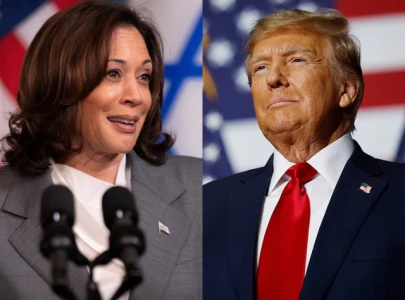
Pakistani democracy operates in a peculiar manner characterised by growing challenges in its commitment to safeguarding citizens’ rights and interests. This distinctiveness arises due to an environment riddled with persistent institutional interference. Consequently, the adherence to democratic principles aimed at promoting a citizen-centric agenda seems to have given way to an overreliance on individual politicians, often at the expense of public welfare. Over the last three decades, we have witnessed a recurring pattern of the establishment throwing its weight behind one political figure after another while simultaneously subjecting their predecessors to legal battles and court cases, often resulting in their exile.
This cycle of political maneuvering and power transitions repeats itself from one tenure to the next. Paradoxically, despite tumultuous transitions, there remains a heavy dependence on the personality in exile to resolve the country’s myriad issues. This overreliance on individual personalities consistently takes precedence over the pressing need to prioritise citizens’ rights and entitlements at the forefront of the political agenda.
In April 1986, then PPP Chairperson, late Benazir Bhutto, returned to Pakistan after over two years in exile, which had started in January 1984. Her return took place during turbulent times marked by a power struggle between the then President, General Ziaul Haq and Prime Minister Mohammad Khan Junejo. Benazir’s homecoming was seen as a pivotal moment, as she returned to lead the opposition against Zia. After Zia’s demise, the political scene during the 1990s underwent a series of transformations with frequently changing elected governments. In April 1999, after the takeover by General Pervez Musharraf, Benazir once again was forced into exile, this time over allegations of corruption. Her husband, Asif Ali Zardari, who had spent nearly five years in prison, also departed the country in late 2004. It was not until October 2007 that Benazir returned for the revival of democracy. Zardari returned during the same year in December after Benazir’s assassination.
A similar narrative of political upheaval and exile can be observed in the case of PML-N leader Nawaz Sharif. During Musharraf’s regime, Nawaz faced legal battles that led to his sentencing and eventual departure from the country. He returned from exile in August 2007 after seven years, and joined the lawyers’ movement, which led to Musharraf’s resignation. Subsequently, after the General Elections in 2013, Nawaz was elected Prime Minister, but due to the Panama Papers scandal in 2016, he was subjected to a legal battle. In June 2018, he temporarily left the country to visit his ailing wife, returning the following month. Upon return, he received an imprisonment sentence but was later granted bail for medical treatment, ultimately going into exile in November 2019. Very recently, his imminent return, slated for late October, is framed around the objective of rescuing the country from economic and political turmoil.
These recurring episodes of exile and return underscore a disconcerting pattern where the discourse of good governance in Pakistan appears to centre primarily around prominent figures. Meanwhile, the pressing question of where the citizens’ needs and aspirations fit into this equation often remains on the back burner. The persistent power struggles have not genuinely served the interests of Pakistan; instead, they have led to institutional decay and a worsening of problems at regular intervals. The entire agenda of citizen-centric reforms appears to languish. Successive leaders, who may have attempted to enact change, have faced charges and exile, only to later return to their original positions. These issues have considerably diverted attention away from pressing matters, including the economy, healthcare, education and more. This cycle has seemingly held the country hostage. With the impending return of Nawaz, we may witness a familiar pattern of one party being encouraged to come to power while its predecessor faces legal battles and imprisonment. This recurring cycle, a regrettable hallmark of Pakistan’s political landscape, calls into question the prospects for genuine progress and reform.
Published in The Express Tribune, October 9th, 2023.
Like Opinion & Editorial on Facebook, follow @ETOpEd on Twitter to receive all updates on all our daily pieces.








1729685382-0/Untitled-design-(57)1729685382-0-270x192.webp)


1730706072-0/Copy-of-Untitled-(2)1730706072-0-270x192.webp)
COMMENTS
Comments are moderated and generally will be posted if they are on-topic and not abusive.
For more information, please see our Comments FAQ